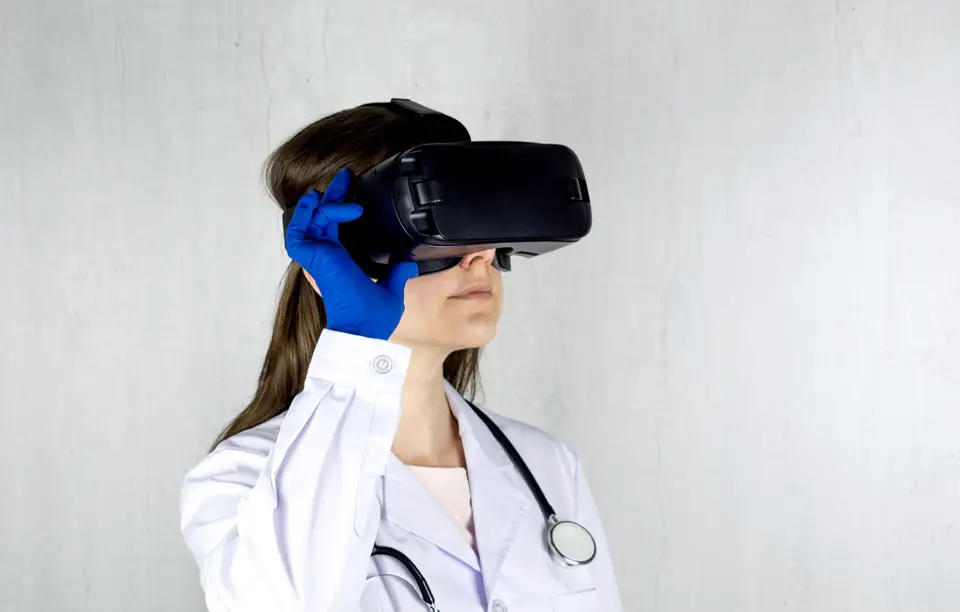In an effort to transform the training mechanism for using optical coherence tomography (OCT) imaging technology, Abbott launched its first-ever virtual reality-based training program for interventional cardiologists. This program amalgamates traditional training techniques with virtual reality (VR) to enhance effectiveness when using Abbott’s OCT imaging. From a patient’s perspective, it will lead to massive improvements in terms of outcomes for the ones needing a stent to open occluded arteries.
Abbott is augmenting its training methods to equip physicians with new therapy options and effectively operating the imaging and diagnostic tools with a focus on enhancing successful patient outcomes. Adopting a hands-on approach through virtual reality, the physicians can obtain close to the real-world practical experience with imaging technology and a sense of being present in the catheterization laboratory physically.
To allow for a better analysis of the patient’s coronary artery disease, Abbott’s OCT, an intracoronary imaging platform, enables the physicians to observe the coronary arteries from within the vessel with better accuracy. It helps to improve the quality of stent deployment and the overall effectiveness of the treatment. The data suggests that 88% of Percutaneous Coronary Intervention (PCI) procedures led to better clinical outcomes by enhancing physician decision-making compared to angiographically-guided strategy. However, training remains the decisive factor for ensuring optimum utilization of this technology by physicians and hospitals.
Vamsi Krishna, M.D., Ascension, Seton Hays Medical Center says, “It’s undeniable that OCT imaging technology is unlocking new opportunities to improve outcomes for our patients. Abbott’s new VR training program has provided my team the experience of being in the cath lab and understanding OCT technology quickly and efficiently.”
Adding on to the usefulness of virtual reality in terms of training, he remarks, “The OCT VR program enhances training for OCT imaging technology through innovative educational programs. Virtual reality is truly the next wave of training that will ultimately improve patient outcomes, and I’m very excited to be a part of the new program.”
The training program takes inspiration from the success and input of Dr. Richard A. Shlofmitz (MD, FACC, Chairman of Cardiology at St. Francis Hospital, The Heart Center), who was able to translate new training concepts into developments inpatient care through his extensive OCT experience. The novel virtual reality-based training programs, being facilitated through Oculus Go™, will be highly advantageous over the prevalent use of angiography.
The cath lab staff learning engagement went up by 45%, and the knowledge retention showed a growth of 72% through the implementation of virtual reality techniques. Apart from this research by Abbott, 87% of other studies highlighted a higher accuracy in medical practice for those trained with virtual reality as opposed to traditional methods.
According to Harvinder Singh, Vice President, Global Commercial Operations for Abbott’s vascular business, “Abbott’s new OCT training enables interventional cardiologists to receive more in-depth, experiential training to encourage more precise diagnoses, while healthcare systems will experience cost savings through a reduction in the number of staff training courses needed.”
He goes on to say about the onset of such innovations in the industry, “The virtual reality training program will not only enhance accuracy to improve patient outcomes, but it also furthers the industry’s adoption of innovative technologies in healthcare.”
Nick West, M.D., Divisional Vice President, Medical Affairs, and Chief Medical Officer of Abbott’s vascular business says, “Virtual reality-based training programs are truly changing the way interventional cardiologists learn and adopt new technologies, such as OCT, that are helping physicians make better decisions in the cath lab. The program is also furthering Abbott’s ability to use technology and innovations to drive better patient outcomes.”
Follow us on LinkedIn
Read other Articles




